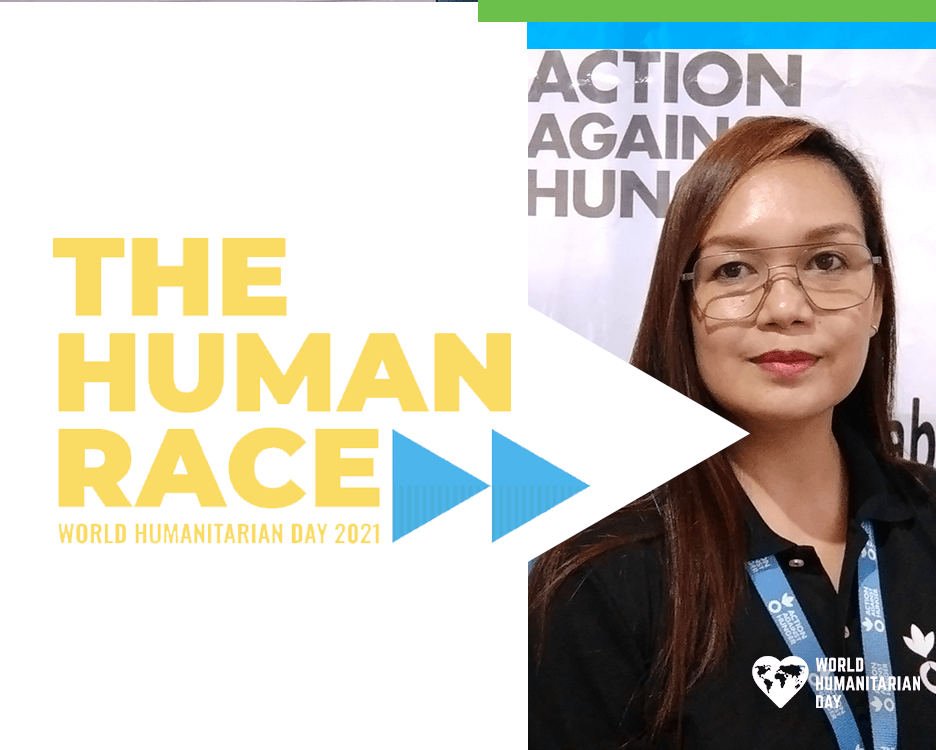World Humanitarian Day 2021 – Jo An Jagape
In celebration of World Humanitarian Day 2021, meet Jo An Jagape, our FSL Assistant for Mindanao Program 2021, and one of our Real Life Heroes! Get to know Jo An and find out how what inspires her in her work as a humanitarian worker:
What is your role and/or key responsibilities in Action Against Hunger?
As Food Security and Livelihoods (FSL) Assistant, my responsibilities are to coordinate, profile, and identify target beneficiaries. I assist my team in the implementation of the cash-for-food program; focusing on the most vulnerable, food-insecure displaced households and host communities affected by conflicts, disasters, and COVID-19 pandemic.
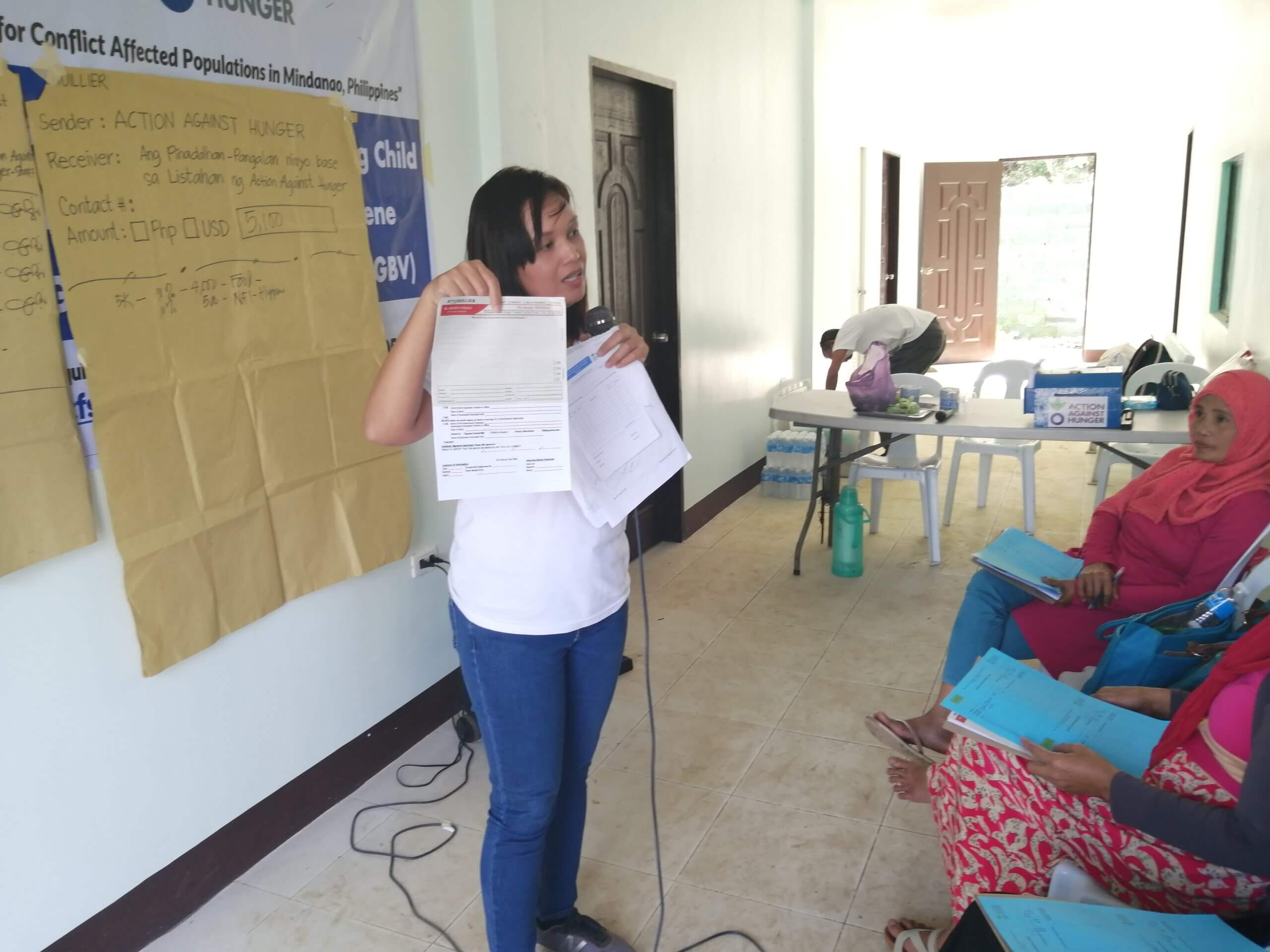
Photo taken before COVID-19 pandemic. Image courtesy of Jo An Jagape
How long have you been working as a humanitarian worker?
Since 2005, after completing my college degree. I was initially engaged with a local non-government organization based in Lanao del Norte as a finance staff, but along the way the organization involved me with other tasks from coordination, representation, trainings, youth organizing and exposed me to farmers & fisherfolk communities with different cultures. This nourished my social awareness.
My involvement with Action Against Hunger started during the 2012 Typhoon Sendong (WASHI) Emergency Response in Iligan City. Since then, I have been involved in eight different Action Against Hunger projects, in different roles.
I’ve also had great experiences with other agencies or INGOs doing humanitarian work. I’ve learned and cherished ideas that are new to me, and even enhanced and replicated these ideas to other projects.
What motivated you to become a humanitarian worker?
I have a dream that someday we will collectively achieve the change we want for our next generation’s society. When I was in college, I was involved in a youth organization. This group helped me a lot in opening my mind and understanding the situation of our society. My eldest sister, Jet, who is also working with a local non-government organization encouraged me to try and work with a local NGO and along the way, I got the perspective of serving the community in need and understanding the principle of humanity. Working with communities that have different cultural and religious perspectives has influenced my passion for solidarity and to continue my humanitarian responsibility to serve the most vulnerable.
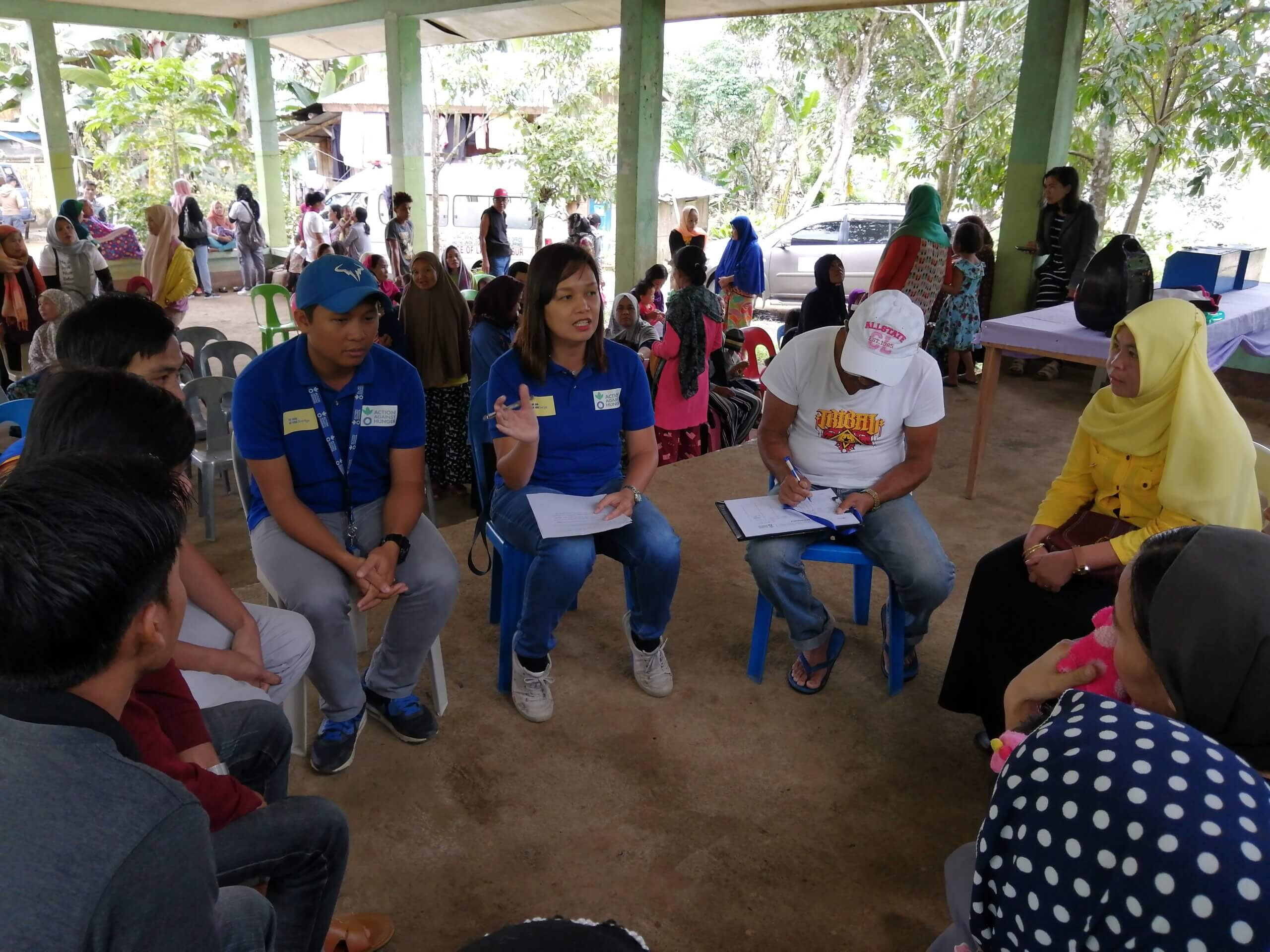
Photo taken before COVID-19 pandemic. Image courtesy of Jo An Jagape
Why are you making this sacrifice?
Someone asked me once why I am focusing now on the food security and livelihood sector when my previous engagement with NGOs was mostly linked with the financial side of things. For me, accounting work and recording books in a cozy office space have the same workload in the field but in a different twist. As an FSL staff, you will be dealing with everything, from office to communities’ concerns. Being in a technical team you must be responsible, adaptable, proactive, and have a sense of mindfulness to support any developments. Until now I am still eager to learn other concepts to help me improve strategies in responding efficiently during emergencies or in the recovery phase.
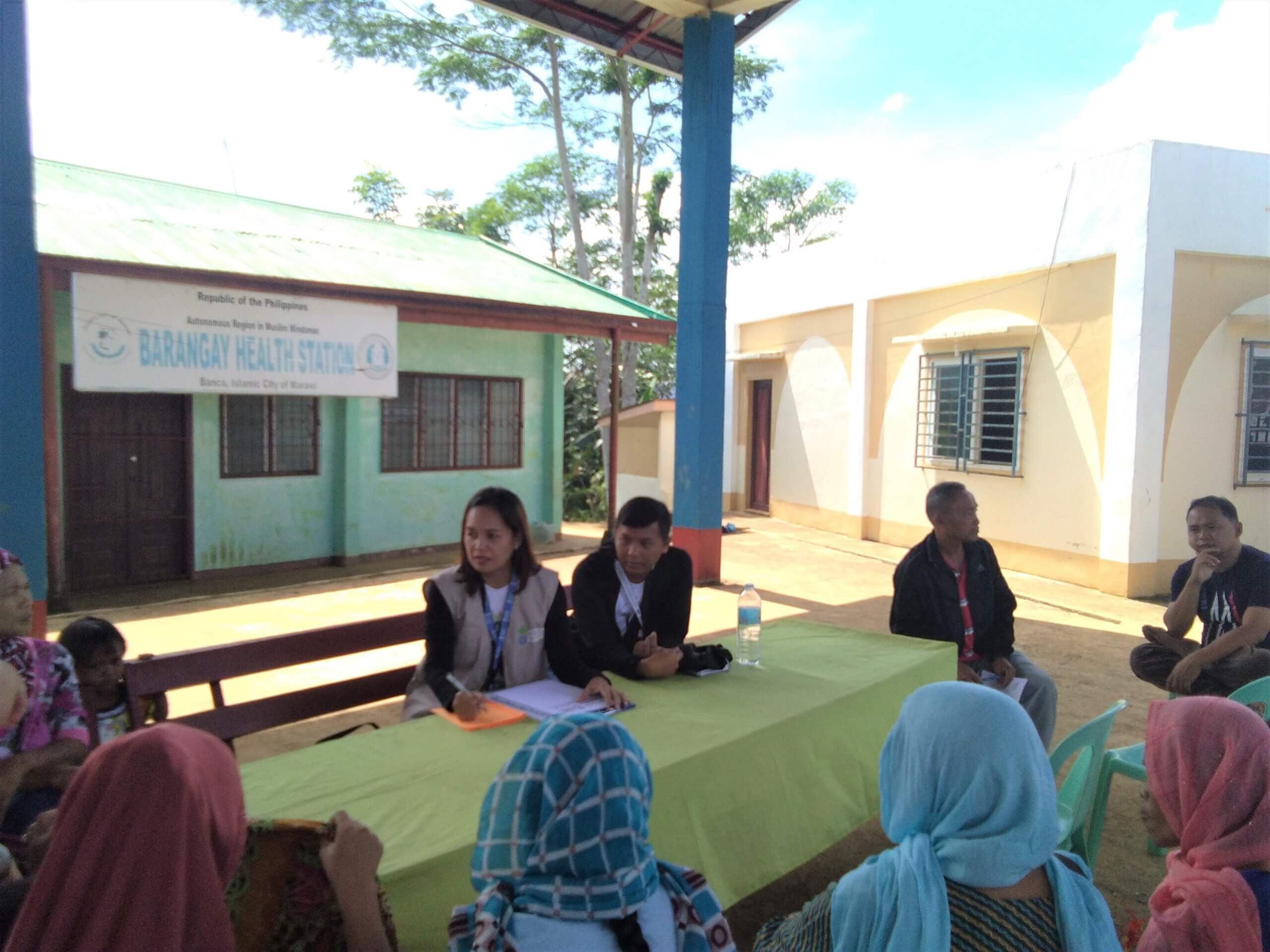
Photo taken before COVID-19 pandemic. Image courtesy of Jo An Jagape
What have been the challenges to your work?
As a humanitarian worker, you take a lot of risks. It might be your security, privacy, health condition, stress from workload, and being away from your family. It’s been more than a year since the start of the COVID-19 pandemic, and it has worsened with different variants. I remember last year that I was away from my 2 young children for almost a year because of pandemic protocols. Balancing work and family time were greatly affected by the pandemic.
My current project has target areas that are located far from the base. It takes us 3 hours of travel time to arrive at the venue. Organizing a limited number of people in the area were done because of restricted mass gatherings while respondents and target households’ attendance was limited due to transportation concerns, fear from virus infection or just thinking that they’ll be forced to vaccinate. With all these work challenges the health & nutrition and community volunteers, RHU/LGU staff were very supportive to the team and flexible with their time to accommodate the planned activities. With their active participation, the project implementation went as planned.
The fear of becoming infected with the COVID-19 virus is inevitable, but what I do is protect myself with proper hygiene and discipline to prevent the virus.
What motivates you to keep doing your work even with these challenges?
In the current project I am in, I am very glad that I’m surrounded by colleagues that have a sense of urgency, who are very creative, and have an open mind to others’ opinions on how to implement efficiently the planned activities. My team’s positive attitude keeps me motivated.

Photo taken before COVID-19 pandemic. Image courtesy of Jo An Jagape
What are you most proud of?
The positive learnings that I will bring wherever I might be assigned in my future humanitarian journey. My previous projects have exposed me to new knowledge. I remember my previous colleague, Jonathan Gorre, teaching me how to quickly determine nutritionally at-risk children and women using Mid-Upper Arm Circumference (MUAC) tapes. This knowledge, along with other quality learnings from other colleagues from different sectors will be with me forever.
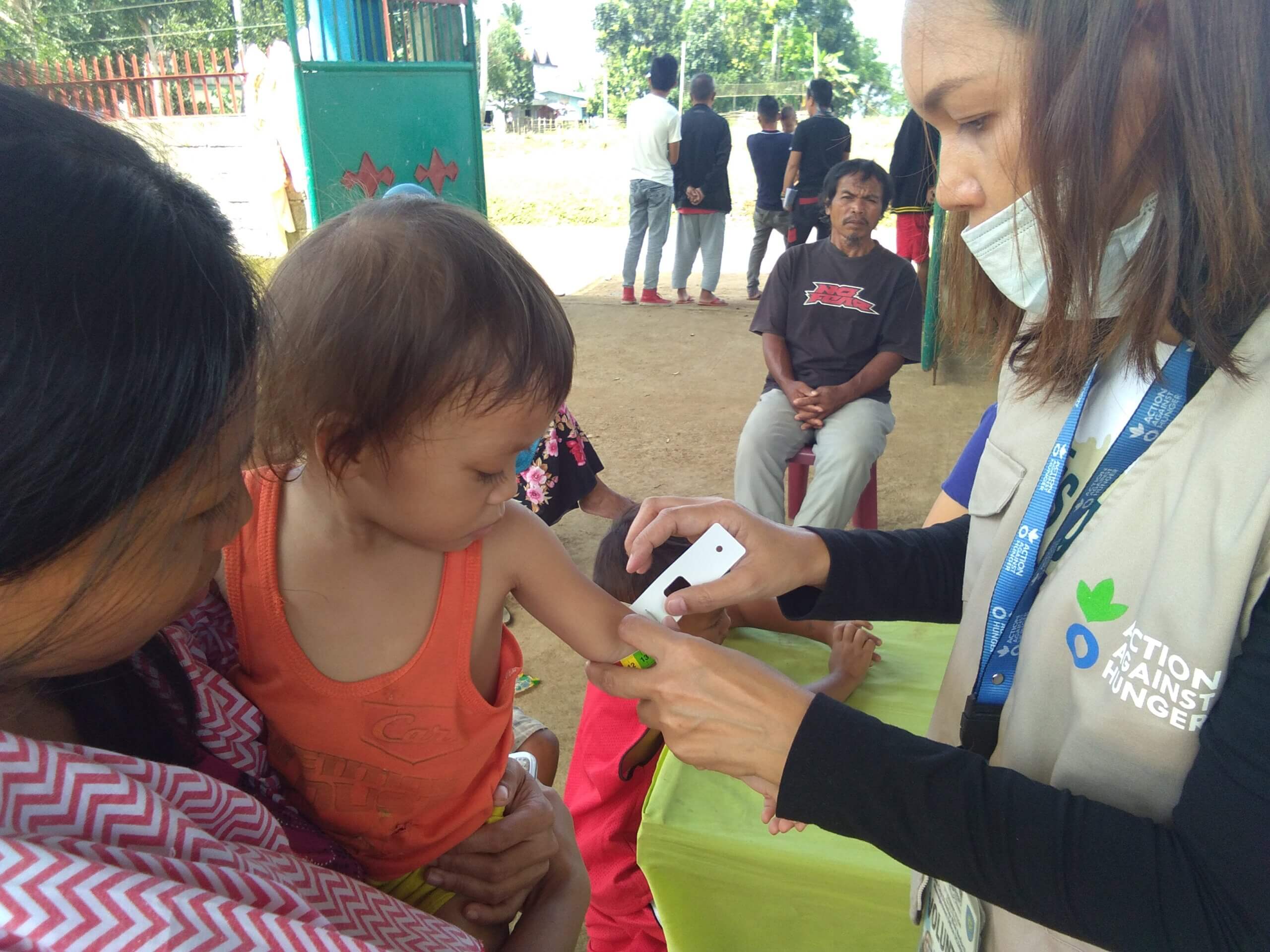
Photo taken before COVID-19 pandemic. Image courtesy of Jo An Jagape
What climate change impact have you seen with your own eyes?
In 2021, people living in Mindanao have experienced rising temperatures, extreme heat that is unusual and is above the average recorded from the previous years.
How are you helping combat climate change?
Combating climate change is very challenging! For me, I’ve changed to a minimalist lifestyle, practicing less consumption, and supporting green technology. I have also joined groups that advocate to plant more trees and develop an agroforest. Future generations will surely benefit the cause.
The ‘Multi-Sectoral Lifesaving Assistance To People Most Vulnerable To The Covid-19 Pandemic, Conflict, and Disasters’ or Mindanao Program 2021 is funded by the Swedish International Development Cooperation Agency (SIDA).
Help us fight climate change by leading The Human Race.


